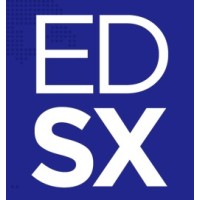Decentralized autonomous organizations, or DAOs, are growing in the booming decentralized finance sector. Their collective treasuries now hold over $25.1 billion in total assets. DAOs operate through transparent rules set by their members. This gives users control over the services they use. Each DAO distributes governance tokens to confer voting power on decisions. These tokens can also hold value as investments. However, regulators view these tokens as potential securities. This is due to their ability to gain worth over time. It also relates to how DAO founders first issue the tokens. This creates a challenge. Widespread distribution of governance tokens is key to a project’s function. But strict securities laws could hinder such distribution. Therefore, lawmakers must address the DAO and legal structures around them.
The adoption of DAOs has been rapidly increasing, with DAO treasuries now exceeding $25.1 billion in total assets. This represents significant growth, as assets have doubled since the beginning of 2023. Layer 2 DAOs, particularly those in the infrastructure category, have played a major role in this adoption. Optimism and Arbitrum are the leading DAOs in terms of treasury funds, with $5.5 billion and $4.4 billion, respectively. The total value locked in DAO treasuries accounts for approximately 40% of the entire DeFi sector, highlighting their importance in the ecosystem. Despite the challenges and regulatory uncertainties, the quick adoption of DAOs demonstrates their potential to shape the future of decentralized finance.
European Push for Legitimization
In Europe, discussions surrounding the legal status of DAOs are gaining traction. The communications minister of Finland, Timo Harakka, has called for the European Union (EU) to consider legislation that recognizes DAOs governing Web3 applications. Harakka emphasizes the need for a uniform standard across EU member states to prevent regulatory fragmentation. He suggests that the European Commission should take the lead in initiating new laws to address the regulatory gap for new players in the Web3 world. Harakka acknowledges the unique challenges in regulating DAOs compared to traditional corporations and the importance of determining responsibility for transgressions. While there is still much work to be done, he believes it is time to start considering a philosophical approach to regulating smart contracts.
A European Parliament study recommends treating crypto as securities by default. It also supports granting legal status to DAOs governing DeFi. The study proposes all cryptoassets be viewed as transferable securities. This subjects them to strict oversight like traditional stocks. Unless a regulator says otherwise, that oversight would apply. This approach aims to shift responsibility for regulation from agencies to the industry. However, skepticism exists around MiCA regulation’s short-term impact. Especially in an unclear cross-border context. Multiple crypto protocols seek minimal rules. Lack of clarity on if traditional financial rules govern digital assets has challenged the crypto industry. As the EU finalizes MiCA and studies extra rules for DeFi, staking and NFTs, more laws are needed. These address gaps in the current regulation.
Regulatory Hurdles for U.S. Decentralization
In the United States, regulators are grappling with how to classify and regulate decentralized initiatives. Treating governance tokens as securities would subject them to stricter regulations, including identity checks of token holders, which could negatively impact the user experience. This issue primarily affects companies subject to U.S. regulations, potentially putting them at a competitive disadvantage compared to companies in other countries.
To address this dilemma, U.S. regulators and lawmakers need to revise securities legislation to accommodate the unique characteristics of decentralized systems. By updating regulations, the United States can create a level playing field for domestic DeFi initiatives and shape the future of finance while ensuring economic security is not compromised.
In conclusion, the legal status of DAOs is a topic of increasing importance in both the United States and Europe. While U.S. regulators need to revise securities legislation to accommodate decentralized systems, European discussions revolve around recognizing DAOs and establishing a uniform standard across EU member states. The adoption of DAOs continues to grow, with significant assets held in DAO treasuries, indicating their significance in the DeFi ecosystem. As the regulatory landscape evolves, investors should closely monitor developments in both the U.S. and European markets to assess the potential impact on their investments in DAOs and the broader DeFi sector.

Based in Zug, the platform is fully compliant with all Swiss laws related to financial intermediaries, banking, anti-money laundering, and organized trading facilities. Among its core values, there are innovative solutions through blockchain technology, which ensures security and liquidity.
EDSX is the first platform in Europe with primary and secondary markets for both institutional and retails. EDSX is a pioneering platform that employs the world’s leading technology to globally list security tokens in both primary and secondary markets, listing digital securities of real financial instruments to the public with a decentralized peer-to-peer exchange. Our goal is to fully engage every aspect of the financial revolution.
Do you have a question for us?
Send your query here:
[email protected]

